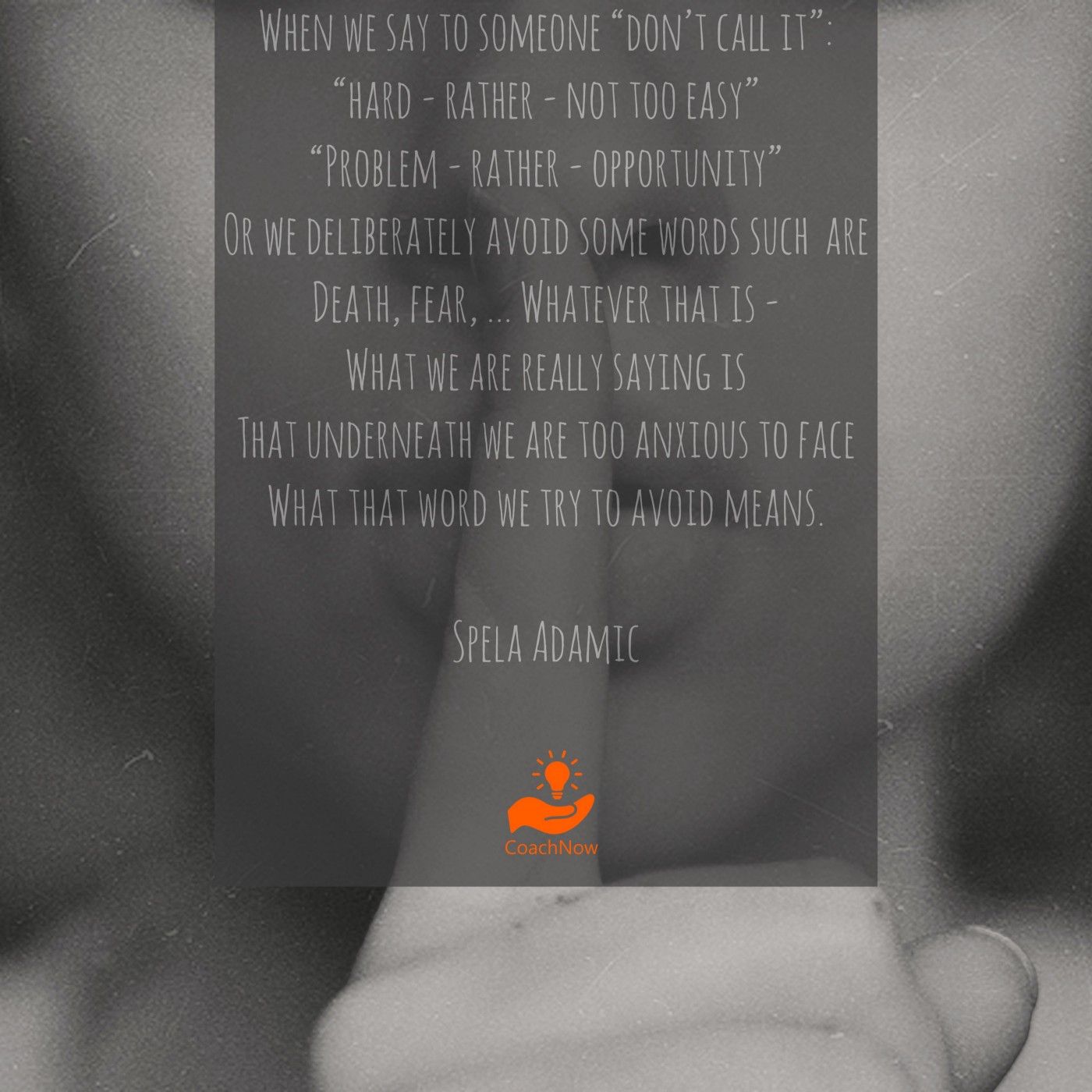The language defines our limits – but so the words we avoid
I attended a seminar lately where the lecturer corrected the individual after the exercise. Someone said ”Oh gosh, this was hard!” and the lecturer jumped in, “No, don’t say that – rather call it ’not too easy’.” I understood the logic behind it – the more positive words you use, the more positively you wire yourself for success. But is it really doing us good to change the words like that? Do we need such rewiring?
I have seen this in the business world often: instead of calling it a problem, we say an ‘opportunity’. Because every problem can be seen as an opportunity if we solve it well. I don’t have a problem with this.
But I do have the problem with too enforced positivity because it implies we (humans) are not empowered to face whatever the difficulties might bring. And if you think, that’s what political correctness is in its essence: not being direct and avoid the confrontation. Sometimes it’s useful and necessary, but in life, where we are real and honest with each other, we should aim to be direct and clear.
The real growth is in facing our difficulties. Otherwise, the things we don’t face will dominate us as the subconscious mind will drive our actions when we’re least aware.

So yes, chose your words wisely – they do become your world, but so the words you avoid.
When we say to someone ”don’t call it”:
”hard – rather – not too easy”
”problem – rather – opportunity”
or we deliberately avoid some words such are death, fear, …whatever that is – what we are really saying is that underneath we are too anxious to face what the word we’re trying to avoid means.
Rollo May, American existential psychologist, wrote in his book Man’s search for himself:
”William Randolph Hearst was an example of this type: he amassed great power and wealth, but he was so anxious underneath this appearance of strength, particularly with regard to dying, that he would never allow anyone to use the word “death” in his presence. The gyroscope men often had disastrous influences on their children because of their rigidity, dogmatism, and inability to learn and to change. In my judgment the attitudes and behavior of these men are examples of how certain attitudes in a society tend to crystallize rigidly just before they collapse. It is easy to see how a period of emptiness would have to follow the breakdown of the period of the “iron men”; take out the gyroscope, and they are hollow.”
Instead of correcting the guy who said “Oh gosh, that was hard,” we should instead acknowledge his words and kept going, trusting in his ability to face the difficulty in whatever he was doing.
When we face things, we can change it, when we avoid it or mask it, without a proper thought through (why we feel so), we’re not building on a solid foundations. And if foundations are not solid, everything else becomes questionable.
Same goes for everything. Not just in the business, but also in parenting, relationships and similar.
Yet, we’re all in this sometimes
I made a stupid mistake this weekend at my friend’s baby shower. When she was stressing the most because things didn’t go as per her plan, I told her “Don’t stress out, it’s all okay.” This wasn’t emphatic to her – because if it was so easy, she would already do it, right? These words ’Don’t stress out’ I said for myself because I tried to calm myself down and projected my feelings onto her. That’s how sad people are often misunderstood and even more alone in such situations as my friend that day. Instead, I should just acknowledge her feelings and say that I am sorry she feels this way, be with her and offer my help.
Next time you’re about to correct someone or someone will correct you about the too ‘negative’ word they are using, pause and reflect. Is this necessary? Why?
Let’s not force ourselves to a more positive culture by replacing the honest words that need to be only acknowledged. We don’t need to ’rewire’ our brain for the sake of being positive. We need balance, and there’s nothing negative about being grounded. If anything, it is reasonable and the only wrong thing here is the ’forced positivity’ – that’s neurosis on its own. We need more honesty, authenticity and more trust in others that they are okay the way they are – not everything needs fixing.